个人新年音乐会
Dec 31st

新年音乐会开到第八个年头。继去年首次对外直播以后,今年在29日又为朋友加演一场新年音乐会。亲自演奏音乐来给大家带来快乐,甚至比做出新天体的发现还要让人开心,感谢希希、思思和星星的欣赏。
传统意义上的个人新年音乐会不再延续以往的“维也纳”式选曲。第一首乐曲是自己新近为国际天文年谱写的《小星星变奏曲》,用莫扎特原曲的音乐引子引出18个变奏,该曲的录音将于晚些时候公布。随后选了海顿的第45号“告别”交响曲以及第100号“军队”交响曲,以纪念这位交响曲之父逝世200周年。为了进一步凸现“国际天文年”主题,霍尔斯特的代表作《行星组曲》中的第四乐章《木星——欢乐使者》也入选。在新年致辞以后,音乐会的终场曲是拉威尔的《波莱罗舞曲》。
Private New Year's Concert of Quanzhi Year 21st
Dec 30th

December 31, 2008
Philharmonic Orchestra 1992 (PO'92)
The Hall of Johann Sebastian Bach
Ye Quanzhi
1. Little Star Variation, A Greeting to the Forthcoming "International Year of Astronomy" 2009, Q. 173 (*)
Joseph Haydn (1732-1809)
2. Sinfonie Nr. 45 in fis-Moll, "Abschiedssinfonie", Hob. I/45; Farewell Symphony
3. Sinfonie Nr. 100 in G-Dur, "Militärsinfonie", Hob. I/100; Military Symphony
Gustav Holst (1874-1934)
4. Jupiter, the Bringer of Jollity, The Planets, Op. 32
New Year's Address
Maurice Ravel (1875-1937)
5. Boléro
(*): Recording will be released on Yeiht later.
20年12月29日基士兰新年音乐会
Dec 27th
时间:20年12月29日16:30
地点:基士兰草原广场
Lowell Mason (1792-1872)
1. Nearer, My God, to Thee (Bethany version, transcribed by Quanzhi Ye)
Fritz Seitz (1848-1918)
2. Pupil's Concerto No. 2 in G Major, 3rd Movement, Op. 13
Joseph Haydn (1732-1809)
3. Quartet in F Major, Op. 3, No. 5
Johann Strauss II (1825-1899)
4. Bauern-Polka, Op. 276; Peasant Polka (transcribed by Quanzhi Ye)
Fritz Kreisler (1875-1962)
5. Schön Rosmarin, Alt-Wiener Tanzweisen Nr.3; Fair Rosmarin
马耀中 李中汉
6. 新疆之春 Spring of Sinkiang
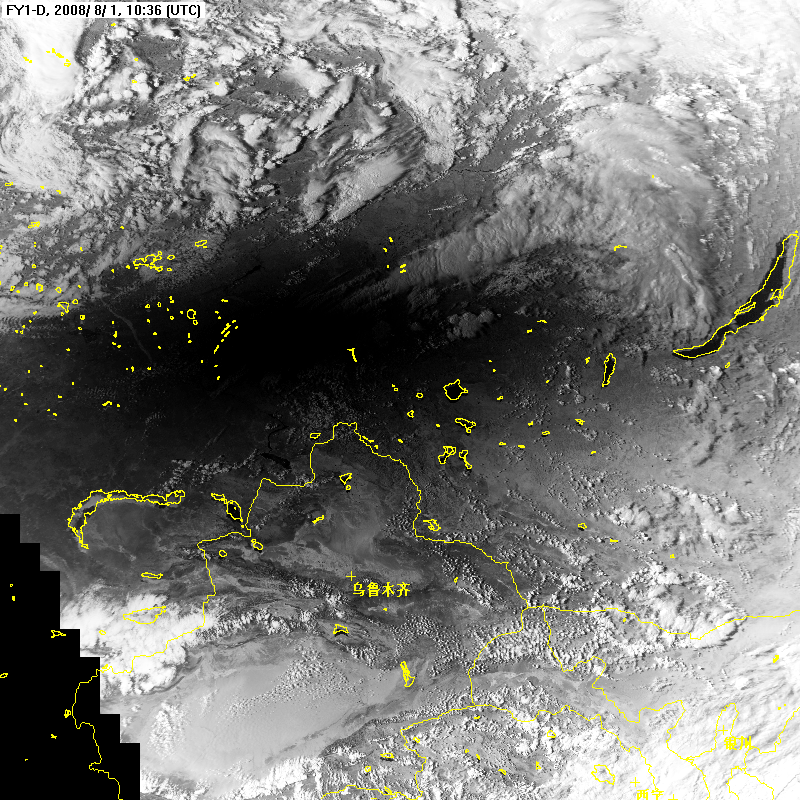
风云1号D星拍摄的8月1日日全食月影
Dec 26th

风云1号D星北京时间2008年8月1日18:36拍摄
为了准备奖学金答辩,23日跑去卫星站折腾了半个晚上,正好翻出风云1号D星拍摄的日全食时的月球影子,处理了一下发上来给大家欣赏。感谢希希助理的协助。
漫步喀纳斯之二:从禾木到小喀纳库勒湖
Dec 22nd
8月16日。
我在温暖的小木屋里一觉睡到10点。这一天乌云密布,与阳光明媚的昨天形成鲜明的对比。带着水珠的草地表明早上下过雨,我也就顺理成章地不必为错失日出而懊恼了。
尽管覆盖两个脚掌的大水泡让我步履蹒跚,但富有田园气息的禾木令我心情愉快,原来坐车回贾登峪的计划也被扔到了九霄云外。我、小牛及Apple这一天的计划是骑马前往小喀纳库勒湖。大牛等人决定继续徒步,因此打算在禾木休整一天。于是,上午12点,我们三人和大牛他们约定喀纳斯再见,背起大背包准备上路。
邂逅老马先生
哈萨克向导古丽娜骑着一匹枣红色的马出现了,身后跟着临时借来的三匹马。我以前没骑过马,有些担心;古丽娜听了以后,便和身后一位骑褐色马的帅小伙说了几句哈萨克话,帅小伙便灵巧地翻身下马,用不太熟练的汉语和我说:“骑我这匹马吧!它十九岁啦,很好骑!”我一听这是匹老马,脑海里顿时浮现出臧克家写的那首闻名遐迩的诗:
总得叫大车装个够,
它横竖不说一句话,
背上的压力往肉里扣,
它把头沉重地垂下!
这刻不知道下刻的命,
它有泪只往心里咽,
眼里飘来一到鞭影,
它抬起头望望前面。
这样一想,又抬起头一看,似乎我面前的这匹马就真的是臧克家写的那匹老马,命运悲惨,让人心软。帅小伙误会了我的犹豫,连忙拍了拍马屁股,保证道:“没问题!这马,性子顺,好骑得很!”听到它主人的话,老马先生偏过脑袋,瞄了我一眼,似乎已经看穿了我是个没骑过马的城市人,颇为不屑的点了点头,扇了两下尾巴;这幅派头,这份神气,全无臧克家笔下老马的味道。然而,我还不肯就此毁灭心中那张凄惨的“老马图”,心想:我要展现一下奉行动物保护主义的新时代知识分子的风范,让“可怜的老马”感受一下人性的光明面。于是乎,我问清了巴结马的方法(摸它的脖子),帅小伙便把我连同我那十几公斤的大背包一起扔到了马上。

我顿时觉得好像坐上了一部无法控制的、摇摇欲坠的机器,颇为战战兢兢
我觉得好像坐上了一部无法控制的、摇摇欲坠的机器,颇为战战兢兢。Apple和小牛多次出外旅行,和马打熟了交道,赶紧驱马过来,给我当面示范;小牛还问我要不要马鞭子。这个问题立即唤醒了我心中那张崭新的“老马图”:我赶紧回答说不要,一边想着那匹“可怜的老马”也许会为此感激涕零。然而,情形的发展却证明了毛主席的一句话:“不是东风压倒西风,就是西风压倒东风。”后事如何,且待我慢慢详叙。
我们披挂整齐,古丽娜喝道“嘟噜嘟噜”,四匹马便开始前进。当跨过那座近90年历史的禾木桥时,但听十六只马蹄在圆木桥面上笃笃作响,我觉得我好像古代的大将军一样,带领着千军万马,威风凛凛地率部开拔;得意之余,正欲往马屁股上拍了一掌,喝一声“驾”,——突然,“老马图”又在心头浮现!我赶紧愧疚地把力度和音量重重地打折。这一打折可不得了,老马一看我学得没模没样,为了表示不屑,立即原地停下,佯装欣赏禾木河美景,任凭我如何好言相劝,就是不肯动窝儿。最后,跑在前头的古丽娜不得不掉过头来解决问题。我在和老马的第一轮交锋中败下阵来。
向导古丽娜
古丽娜下着军裤,上穿一件白色的夹克,头发随意地扎成一条,饱经风霜的面颊似乎暗示着她已经过不惑之年。然而,当Apple询问她多大、有多少个小孩时,古丽娜回答说她是1988年出生的。Apple赶紧道歉,我也不得不礼貌地掩饰内心的惊讶。美好的青春在生活的重担之下是竟如此的短暂易逝,不禁让人觉得感慨悲凉。相比之下,生活在大城市里的我们实在是太太舒适了。
我尝试着与古丽娜攀谈,于是学到了几句哈萨克话:你好—— 加西马;谢谢—— 阿尔米特;再见—— 霍什。可能出于宗教和历史的原因,哈萨克语和维吾尔语很相似。
除了这简单的几句教授以外,古丽娜的话很少。大多数时间她只是对她的马说话,或者即兴歌唱。都说哈萨克人是天生的歌唱家,此话还真不假。于是我们也不再说话,静静地欣赏周围景色并听古丽娜唱歌。

回眺禾木

曲径通幽
曲径通幽处
我们沿着一个挺大的草坡前进,可以看到许多羊在随意地吃草。回头望去,则能看到远远卧在河谷里的禾木村。若是早晨到这里来,也许能看到炊烟袅袅、羊牛晨炼的景象,那一定很美。思索了一阵,我又四处望了望,发现左手边有一座并不太高的山,似乎挺眼熟;判定了一下方位,原来我们昨天经过它的脚下,只是我因为较劳累而没有仔细观察。我后来了解到,这座山的名字叫苏鲁乔克,在那里可以俯瞰禾木村,尤清晨之美景为胜。“苏鲁乔克”在哈萨克语中的意思是“美丽峰”,有考证说此山是因为“形似少女美丽的乳峰”而得名。
我们绕过一座山脊,苏鲁乔克峰便隐在了另一座大山的背后,这时我们沿着禾木河的一条支流前进,道路也变得崎岖起来。这条支流名叫松林河—— 名字起得不赖,因为视线所及的在陡峭山谷两侧,全都长满了笔直的西伯利亚落叶松。我们时而穿行于浓密的松林,时而越过干涸的冰河,时而攀登突兀的山梁,时而横切于陡峭的山坡。有好几处,由于道路过于险峻,古丽娜示意我们下马步行。
不幸的是,这几下几上以后,可敬的老马先生逐渐戳破了我那张“老马图”的幻象。因为我背着个大包,脚伤又没有完全好,上下自然不如另外几位那么敏捷。可能是为了表示对这一点的不屑,马先生便时常罢工,遇到路上鲜美的水草,东一口、西一口地尝个不停,而我惑于“老马图”的威力,又不忍心扯着缰绳不让它一饱口福,其结果是我远远地落在队伍后面。古丽娜不得不再次转过头来对付这个吃硬不吃软的家伙,我在和老马的第二轮交锋中再度败北。

山路崎岖

穿越松林
道中遇雨
我一直以为“一山有四季,十里不同天”的后半句是夸张,没想到还真让我撞上了。中午四点多的时候,出了一会太阳,把身着冲锋衣的我给热了个够呛;可转眼间,前面的山谷里涌出一大堆乌云,晌午之时霎时变得如同黄昏般阴暗。我正惊异于这异样的奇景,豆大的雨点已经夹杂着米雪劈头盖脸地打来,老马一阵嘶叫,掉头就跑。古丽娜赶紧吹起口哨,把四匹马集合起来,正巧路旁有一个哈萨克斗篷,我们赶紧说明来意,躲了进去。
实在挺难想象,这样一处崇山峻岭之中,竟会有人居住。杜牧诗云:“远上寒山石径斜,白云深处有人家。”大概也就如此了。
主人家搬来木柴,升起炉火,我们赶紧凑近烤火,斗篷里充斥着焦炭的味道。我把大背包解下来,才开始打量这个简陋的斗篷和它的主人。斗篷由许多用绳子绑起来的长木棍围成,绳子上挂着一些简单的生活用品:两顶帽子,两件夹克,三个小布包,还有唯一一件电器—— 一架大约上世纪80年代生产的收音机。接近门(其实也就是一个大口子)的地方,有一架很像是广州路边做新疆小吃的那种火炉,这时已经燃烧得旺旺的,里面的枯枝噼啪作响。斗篷里住着一对哈萨克夫妇和他们的四个儿子。男人约摸三十五岁,胡子拉碴,但衣着整齐,目光温和;女人头裹红头巾,穿着一件朴素的灰毛衣,难以判定年龄,但应不会比男人年长;他们的四个孩子,大儿子应该有十五岁上下,在我们进来后不久才匆匆策马而归;另外几个儿子,最大的才到上小学的年龄,最小的还在襁褓之中。后来我们才得知,他们还有另外一位儿子,排行老二,天生眼疾,但却拉得一手好琴(马头琴)。他们之中,只有男人会说简单的几句汉语,于是古丽娜成了翻译。
主人家拿出食物来招待我们—— 他们看起来温饱不愁,但远不算富裕,至少从我的角度来看是如此。食物有硬硬的干面包,羊奶酪,还有酥油奶茶(羊奶是当天挤的),我们则拿出巧克力分给小孩子吃。第一个话题是奥运会,男人指了指收音机,说:“开幕式。”于是我们知道,这一家子通过收音机收听了开幕式。随后男人把话题引到了他的二儿子。他从挂在炕上的一个包里翻腾出几张皱皱的相片,里面有一位大约11岁的男孩,闭着眼睛,在聚光灯上拉马头琴。“拉得好!拉得好!”男人激动地说,语气中充满了自豪。“眼睛,看不见。”他又指了指自己的眼睛。

我们三人和哈萨克一家合影
古丽娜作了翻译,我们才知道男人想问这样的疾病是否可以医治。我们表示乐意帮助,但需要了解一下具体情况。“生下来就这样,”男人说,“去乌鲁木齐看过。”“如果乌鲁木齐的医生都没办法的话,那估计比较难办了。”我们做了一个无能为力的手势,男人明白了。斗篷里顿时沉默下来。
Apple询问他们有什么别的困难。“都好。药难买。”男人说。我们立即把随身带的药品全翻出来,除了自己留下一份以外,全部送给了他们。不过为了向他们解释清楚这些药品的使用方法,我们和古丽娜都伤了不少神。
一会儿,男人想到了别的话题。“几天前,天突然黑了。”他露出一副恐惧的样子。“噢,那是日全食。”我很高兴能接过话茬,便在斗篷里开展了一下科普工作。很可惜,这次连古丽娜都一头雾水,于是我拿出小黑—— 我想,这也许是他们见过的最能代表现代文明的东西—— 向他们展示我拍摄的日全食照片。他们并没有显示出明白的样子,而且,他们看上去恐怕也不太明白笔记本电脑是什么。
倒是三儿子对我们的相机很感兴趣,他最着迷的是这相机居然能一拍完就看到效果。我和Apple吃惊地发现,他对数码相机似乎有一种难以置信的熟悉,——尽管他一开始拿到相机的时候还不知道快门键是哪个。然而,无论是取景还是构图,还是准确地把握拍摄的时机,还是微距、暗景的拍摄技巧—— 这小孩子似乎一学就会,一会就通,让我们看得目瞪口呆。Apple冒了一句:“我用了这么久,到现在所会做的也不过是按快门而已!”
下午八点,雨终于停了,我们赶紧钻出斗篷欣赏。天啊!这是多么难以描绘的美景啊!缕缕白云在我们身边悠然飘过,徐徐东去;不远处的山坡上,松林好像洗过热水澡一样,雾气蒸腾,几棵胖墩墩的小松树优雅地摇曳着,将雨滴甩落地面;大约五六百米开外的山坡上,已经悄悄积下薄薄一层雪,为这夏日氛围增添了一丝戏谑的气息。稀薄的日光忽由身后射来,四周顿时笼罩在一片迷人的金色当中,山坡上的牧草也随即转变成温柔的淡绿或淡黄色。回首向来萧瑟处,一道淡淡的彩虹华丽地出现在松林谷上,如同十几架竖琴同时开始弹奏,而避完雨的羊群,也正在彩虹桥之下,慢步回栏。此情此景,让人赞叹不绝,正如贝多芬第六“田园”交响曲第五乐章的标题:“牧歌—— 暴风雨过后欢乐和感激的心情”。

翠绿的松林与积雪的山坡

一道淡淡的彩虹华丽地出现在松林谷上
强渡松林河
到小喀纳库勒湖还有大约8公里,因此我们必须立即开始赶路,不然到了熊先生和狼先生的上班时间可是很危险的。虽然说大雨之后不宜在山区活动,但古丽娜认为可以继续前进,于是我们就告别了哈萨克一家,继续踏上征途。
因为下过一场暴雨,原本崎岖的道路变得又湿又滑,许多路段我们都只好下马步行。最难走的是一段长度大约200米的落石区,暴雨形成的山泉使得道路全部浸水,我们只能另辟蹊径。身背大包,手牵老马,步履蹒跚地在一堆巨石中爬上爬下,这对我可真是绝无仅有的经历。爱和我开玩笑的老马在关键时刻堪称模范,不停地示意我可以走的途径。但尽管有老马的帮助,我还是花了半小时才通过这200米路程。
到了下午九点,松林河道上升到和道路平齐的高度,这时我们看到对面有一位骑马的中年人,大声地向古丽娜说着哈萨克话,古丽娜也应了几句。我们问古丽娜是怎么回事,古丽娜说:“前面的桥被冲断了,我们要在这里过河。”
我看了看。刚下的暴雨让松林河河水汹涌,看上去不太容易通过。小牛的马原来走在最前面,但也这时也畏惧地退到一边。古丽娜便示意我骑着老马上前。老马真不愧是老马,只见它两耳一竖,略一思量,从那深及马肚子的水中快步趟过,跃上对岸。水沫飞溅到我的脸上,冰冷刺骨,我不禁打了个寒颤。
既然老马已经做了示范,后面那几匹壮年马也就陆续渡过了松林河。四人渡过河后,便一起驱马向那个人走过去。骑马出现在我面前的是一位大约45岁的中年人,个子不高,手上揣着一个扁平的包裹,马上绑着两个大麻袋;他的马同样也不高,看起来和它的主人在个子上倒很相称。古丽娜说他是小喀纳库勒湖蒙古包的老板,我们悬着的心总算放了下来:有老板在,今晚不怕赶不到小喀纳库勒湖了。于是,我们策马跟着老板,在云雾和松林间穿行。
鉴于老马先生的英勇表现,我摸着它的脖子夸奖它,还给它哼了几首进行曲。这样一来,老马更得意了,一溜小跑地跟在老板身后,把小牛他们远远甩在后面。
老马先生的终极玩笑
松林河的南面是向阴面,因此松树长得十分茂密;加上下过雨之后,四周一片云雾缭绕的景象,如同仙境一般神秘;我且看且走,赞叹不绝。
在接近一个山顶的时候,路的正中央出现了一棵老松树,像一座高高的宝塔一样傲然矗立在山坡上。这棵松树是如此高大魁梧,以至于我举头瞻仰的时候,差不多向后栽下马来。然而,松树把本来并不宽的山道给挡住了挺大一部分。人或者家畜要通过倒是没有太大问题,但人骑在马上的话便得当心。我观察了一下,发现它右边的树杈要比左边的高一些,便把缰绳往右边扯,示意老马往右边走。
然而,老马却另有打算,它直着脖子,就是要从左边的树杈底下通过。说时迟那时快,我还没反应过来,就一下子就给卡在那棵老松树的一根树枝上了。还好,老马立即收住了脚步,没有把我挂在松树上就扬长而去,然而情况还是有些不妙:我踢了踢马肚子想让老马后退,但看起来它并没有想要后退的意思;我奋力撑开树枝,想弯腰通过,好不容易头过去了,可身后高高的大背包却又卡在了那根树枝上。经过这样一折腾,我非但脱不开身,反而弄得满身都是松树粉末和雨水。想想看吧:一个身着冲锋衣的家伙,骑着马,弓着背,浑身上下沾满了粉末和水滴,以一种极狼狈的姿势被他的马和背包紧紧地卡在松树的树杈之间,看起来活像个掉进机关里的大鹦鹉。各位读者,你们笑吧!就像现在的我一样尽情地笑吧!当时的我可笑不出来,倒是气得大吼大叫,但又无计可施,只得向老马先生抛去无奈的一瞥。你们猜猜老马怎么着?只见它潇洒地顿了顿蹄子,斜了斜脖子,竖了竖耳朵,好像在说:“怎么样?这样挺好玩的吧?”直到古丽娜马蹄得得地从后面赶来,老马才乖巧地后退两步,我也总算脱了身。

缕缕白云在我们身边悠然飘过
索米因达坂暮色
“松树事件”终于让我的那张“老马图”彻底幻灭无踪。看来,老马早就深谙对付新骑手之道,在我身上寻了一天的开心;而我这个自以为聪明的家伙,却自作多情地臆造了一张凄惨的“老马图”,还死不认错,以至最后差点给挂在树上。想到这些,我不禁无奈地笑了。老马知道我认输,更为得意,一路虚恭个不停(虚恭者,排气也),当看到感觉良好的景色时还要停下来,东看看、西看看,仿佛它才是来这里游山玩水的游客。
我呢,早就没了脾气,连马肚子都懒得踢了,只好照葫芦画瓢,每当老马罢工,也东看看、西看看,还不忘自我安慰地说:“看看,看看,人家是个多么称职的导游啊,还知道提醒你哪里欣赏角度最好呢。”
穿过云雾缭绕的松林,我们面前突然出现了一个袖珍的小河谷,一条小溪流淌其间,将茵茵绿草、蒙古人家和牧归的羊群串成一线,生机勃勃,可爱异常。小牛兴奋地叫道:“亲爱的小羊、小牛、小马们,你们好啊!”恰巧羊群一起咩咩地叫起来,我们都笑了。
这里是到小喀纳库勒湖之前最后一处牧民点。经过蒙古包以后不久,崎岖的道路将我们领到大多数植物生长的高度线以上,四周的景色皆尽荒凉,再也看不到万木参天的景象,也听不到夏虫的鸣叫,有的只是无数乱石,以及在乱石堆中回响的马蹄声。
在夕阳西下之时,我们穿过一条干涸的冰河,开始翻越海拔2480米的索米因达坂。夕阳的余晖照在山尖的碎石上,然后是远处的雪山顶上,最后消失于广袤的天地之间。四下里越发昏暗,只有天上的白云依然放射着柔和的淡红色。我只能隐约看到两公里开外那座雪山的银色轮廓,以及道旁乱石的绰绰剪影。
天色渐渐黯淡,黑夜开始统治大地。然而,在这荒凉山岭中前进的人们却注意到,有一束柔和的光线从东面的峰峦中射出,仿佛那里藏有天地尽头的稀世宝藏似的。不久,一轮圆月静静地出来了,如同身着轻纱的嫦娥一般,在云雾缭绕的峰峦之间徘徊。在雾气的烘托之下,它呈现出羞答答的桃红,显得娇小可爱。
我从来也没见过这样温柔的月色。也许,这样令人陶醉的美景只能为这样荒凉的疆土所拥有。
随着低空的雾气慢慢散去,月光开始变得皎洁起来。光辉照耀在笼罩着脚下山谷的云层,洒满了四周荒凉的群峰。我可以清楚地看到雪线就在两旁山坡上不远处,勾勒出一道迷人的弧线;弧线以上,便是洁净而青春的白色。真的有雪精灵吗?我想他们一定生活在这里,在这远离尘世的静谧之地。
我真应该从再远一点的地方来观赏这样迷人的景色。

小喀纳库勒湖的月偏食
小喀纳库勒湖之夜
大约晚上十点,我们自东向西越过了分水岭,这是千湖地区与禾木河谷的地理分界线。在这里,人们可以俯瞰一公里开外的小喀纳库勒湖。它静静地躺在峰峦怀抱之中,像一面巨大扁长的黑色大理石镜子一样,平整地反射着天空中淡淡的云彩和闪亮的星星。多么震撼的景象啊!除了神奇的大自然,还有谁能设计出如此精美而和谐的场景呢?
我们走下分水岭,那块大理石距离我们越来越近。我借助于淡淡的月光,看到我们正穿越一处奇特的地带:黑色的地面有很多深深陷下去的蹄印,说明这里是比较浅的沼泽。所幸老马对这一带的地形了如指掌。大约20分钟后,我们到达了今天旅行的终点—— 小喀纳库勒湖蒙古包。我们下了马,躲进蒙古包,点起蜡烛,升起炉火,吃了顿丰盛的晚饭,便躺在热烘烘的炕头上进入梦乡。
今晚恰巧有一次月食,于是我在凌晨三点半爬起来观看。夜间的小喀纳库勒湖竟是如此的冷,即使我把所有的衣服统统套在身上,也无法让手脚有哪怕多一丁点的知觉。小喀纳库勒湖就在不到100米之远,我可以隐约地辨认出我在月光下的影子,被拖得长长的,一直拖到那黑不可测的湖水之中。那死寂的颜色让我汗毛直竖。
有好几次,我侧过头,细心地分辨那传入鼓膜的微弱声响,畏惧但企盼地希望听到那传说中幽远的狼嚎。但整晚除了马冷得顿蹄子的声音,蒙古包上的布被大风吹得猎猎作响的声音,以及山坡上某些无害小动物偶尔发出的声音以外,便再也没有其他。
一个城市人类眼中的荒寂疆土,却依然为冰原之狼所避让。我们与真正的大自然离得太远了。
- 回眺禾木
- 曲径通幽
- 上山的道路
- 松林谷
- 松林谷
- 山路崎岖
- 穿越松林
- 干涸的冰河
- 翠绿的松林与积雪的山坡
- 一道淡淡的彩虹华丽地出现在松林谷上
- 缕缕白云在我们身边悠然飘过
- 我们三人和哈萨克一家合影
- 我顿时觉得好像坐上了一部无法控制的、摇摇欲坠的机器,颇为战战兢兢
- 我、Apple和哈萨克小孩
- 蓄须像
- 禾木-小喀纳库勒湖
- 小喀纳库勒湖的月偏食
Murphy's Laws of meteor astronomy
Dec 17th
- Four mutually exclusive things: clear skies, no moon, no school(work) and major shower peaks.
- Meteor activity will be low until you decide to take a break.
- Meteor activity will be low until you fall asleep.
- While watching a major shower you will see only one meteor in several minutes, many will appear while you're recording the lone meteor you saw.
- If you're facing north, most meteors will appear in the south.
- When you turn south, most meteors will appear in the north.
- When you install a fisheye meteors will disappear altogether.
- When a fireball appears you will invariably be looking 180 degrees in the wrong direction.
- When a fireball appears you will invariably be looking at the ground.
- When a fireball appears you will invariably be recording a +5m meteor.
- When a possible minor shower meteor appears you will remember its path, but you will forget its direction.
- When a possible minor shower meteor appears a gust of wind will appear out of nowhere and blow your charts downhill.
- Meteor activity will be nonexistent until you must take a sanitary break.
- Meteor activity will be low until you become really hungry.
- The diameter of stars is linearly proportional to your teff.
- The number of meteors is exponentially proportional to your teff.
- During an uncharacteristic stretch of clear skies the peak night will be cloudy.
- Your taperecorder will die during the most active period.
- Your pencil will die during your most active period.
- Your torch will die during the most active period.
- A possible minor shower meteor will invariably appear in Camelopardalis.
- A fireball will invariably appear in Camelopardalis.
- A fireball will invariably appear in your camera's field of view in between exposures.
- A fireball will invariably miss your camera's field of view by a couple degrees.
- When a fireball appears it will invariably appear in the part of the sky that's not on your charts.
- When it's clear your LM will be poor.
- If your LM is great you will either become sleepy or fog will lift.
- Fog will lift anyway.
- If the weather is poor and you go chasing clear skies, it will eventually be clear home.
- The largest telescopes you've ever seen will invariably be present during the peak night.
- The radiant of a very weak possible new shower will invariably be best placed for observations in early April evenings.
- Two mutually exclusive things - clear skies and no moon.
- If it's clear all day, it'll be cloudy that night.
- You will invariably be grounded due to committments during those LM7 nights.
- If it's clear and there's no Moon, it will be brutally cold and the wind will be blowing like a hurricane.
- When you catch a fireball on your camera the photo will be out of focus.
- Perfect photos will be ruined by the lab.
- The product of the number of shower meteors and the desire for their processing has a constant value.
- If you observe 364 nights a year, the outburst will happen in the 365th.
- If you observe 365 nights a year, there will be no outburst.
- Your wife/husband/boyfriend/girlfriend's birthday will be on January 3, August 12, November 18 or December 14.
- If you observe from your backyard your neighbour's dog will have a sleep disorder.
- If you observe from your backyard your neighbour will have a sleep disorder and spend the night in a brightly lit kitchen, which will invariably be facing your backyard.
- If it's been clear whole July and up to August 12, the latter date will invariably be cloudy.
- If it is by some coincidence clear it will be unseasonably cold.
- If winter has been mild so far there will be a blizzard on December 14 and your favorite observing spot will be burried under a meter of snow.
- You will catch a cold on December 13.
- You will get over the cold quickly but you will be ill again on January 3.
- Your mid-term exam will be on January 4.
- When you arrive to your favorite spot for the Geminids you will forget: gloves, extra socks, warm drinks.
- You won't observe the Geminids since it's full Moon.
- If it's not full Moon you will be under the only cloud within miles.
- You will always enjoy clear skies when the Moon is full. You won't when it is new Moon.
- If an outburst is predicted it will occur 16 hours earlier and you will miss it.
- If you prepare and observe 16 hours earlier there will be no outburst.
- If its crystal clear there will be a lone patch of cirrus passing during the outburst.
- It will always be clear during the nights before the maximum from a big meteor shower. The maximum night will be clouded out.
- There is no such thing as luck.
- If there is, luck has nothing to do with it.
- There is always this observer in Florida Keys/Sacramento Mountains/Mauna Kea...
- Sooner or later there will be a streetlight installed that illuminates your backyard.
- When you go break it, you will invariably get caught.
- If you don't get caught you get electrocuted.
- Your tape will get jammed during highest activity.
- In March or April your tape will get jammed in early evening and you won't notice it till morning twilight.
- You're smart and you record your meteors on paper. In morning twilight there will be a gust of wind and it will blow your paper away and you will never see it again.
- Your alarm clock will fail you.
- Your backup alarm clock will fail you too.
- Your backup backup alarm clock will fail you as well.
- Zzzz...
- You will unkowingly lie down on a small rock. By morning twilight it will feel like a house sized boulder.
- There is no such thing as luck.
- If there is, luck has nothing to do with it.
- If your neighbours don't have a sleep disorder and don't have a dog, they will invariably have a large tree that will block out a good part of your field of view.
- No, they will not cut it down.
- After you've seen a good display there will always be this guy in Florida Keys/Sacramento Mountains/Mauna Kea who will have his LM a full magnitude better and will have seen many more meteors.
- After you've seen a poor display there will always be this guy in Florida Keys/Sacramento Mountains/Mauna Kea who will have his LM a full magnitude better and will have seen a great display.
- Leonids don't peak over your longitude.
- There will always be this guy in your group with 0.5mag better LM.
- There will always be this guy who logs 300+hrs teff every year.
- If you leave your meteor observing form on your table your dog will chew it.
- If you operate 7 cameras and have 95% sky coverage, the fireball will appear in the uncovered 5%.
- If fog lifts it will invariably be 3m higher than you can possibly get. Above that it will be perfectly clear. Bortle Class 1.
- The Perseid peak and the only thunderstorm in summer will invariably overlap.
- If the sky clears after the thunderstorm and in time for the peak, fog will lift.
- Your photocopier will break down at 1am while reproducing your vital star charts.
- Your reclining chair will break down on August 12 at 7 pm.
- There will be a major (historical) auroral storm during the major shower peak. Next night there will be no aurora and no meteors.
- You began serious meteor astronomy career a couple of days after: Aug 13 1993, Nov 17 1998, Nov 18 1999...
- Draconid outbursts will ALWAYS occur over Japanese longitudes.
- Sooner or later you will receive a visit by a friendly hedgehog. Sooner or later you will receive a visit by a not so friendly wild boar.
- You will get distracted by a small rodent in the same instant a fireball appears.
- If you brought N pencils you will always need N+1 pencils.
- There will be a supernova during a Leonid meteor storm.
- There is no such thing as luck.
- If there is, luck has nothing to do with it.
- Meteor predictions will be accurate forever, until you decide to observe.
- The more inconspicous the stream, the more likely it is to outburst. You will therefore miss most (all) outbursts.
- If there is an outburst, you will be caught unprepared.
- Bright fireballs won't happen to you.
- If your taperecorder and talking watch work well, there will be nothing to record.
- Most of your 'observing expeditions' will end with an 'I should've stayed home'.
- The ones you stay home are the most successfull.
- You will be ridiculed for your fireball observation, since there was obviously an alien invasion.
- If a storm is predicted, the radiant is in south hemisphere.
- The radiant is located 1 degree below horizon, at your radio-scattering observing site.
- There will never be observers at the right place to observe your predicted maximum. So you will never know if your predictions are right or wrong.
- If theory is right, there is no observer. If theory is wrong, there are lot of observers.
- Your predicted maximum occurs when the radiant is above the middle of Pacific ocean, Antartica or South Africa.
Quoted from MBK Team at http://www.orion-drustvo.si/MBKTeam/meteors/murphy.htm
12月13/14日双子座流星雨观测
Dec 14th
壮观的双子座流星雨很少会让人产生“退票”的念头。所以,尽管皓月当空,我还是安排了观测计划。
晴天钟的预测还算准确,13日早晨阴天,随后逐渐放晴。但冷空气并未使空气质量立即改善,13日晚月出前极限星等仅为3.5等左右;月亮一出来,天空简直就是惨不忍睹,连1等星都很勉强,只好等月亮过中天以后再开始观测。不过,在我被迫耐心等待的时候,双子似乎倒十分兴奋,我0点和1点多两次出去查看天气,各呆了不到2分钟,结果就看到了3颗流星,还有一颗是曳过大半个夜空的火流星。
浪费了大半个晚上以后,14日2:41,观测总算开始了。由于北风的不断加强,低空大气也好转了不少,利用9号天区测定的极限星等约为2.23等—— 我承认这是个120%可以让人睡觉的数值。但双子座流星雨,一年等一回,所以我还是披上冲锋衣,把行军床挪到天台上。温度计显示气温约为15摄氏度,但北风却异常大,阵风甚至可达强风级别,吹得我还没躺下来就瑟瑟发抖(那件冲锋衣可是去北疆的时候穿的)。第6年看双子,依然有惊喜:躺下来还不到1分钟,一颗约-4等的火流星就表示欢迎(其实这么烂的天,看到的也只能是火流星了),接下来9分钟内又出现了2颗流星(注意,是这么烂的天里头的数字)。双子这块金字招牌续写传奇。
比较糟糕的是我很快一边发抖一边犯困,眼皮开始不听使唤。想起虾说在实验室通宵弄细胞(还是别的什么?反正我也不懂),要找个人去陪着说说话,还说实验室的空调只有吹风和除湿两档,云云。哎!我这个实验可好得很,不仅孤军奋战,还可以“享受”老天的天然大空调,咔咔。为了保持清醒,我不得不在行军床上扭成各种姿势。我想,从第三者的视角来看,明亮月光下的一个扭来扭去的东西一定很诡异吧。
最大的惊喜是在3:10,一颗约-6等的火流星在狮子座炸开,用一个土得不能再土的比喻,“像闪电一样”。我不禁欢呼致敬,因为至少一年没见过这么亮的流星了。
到3:27,困得犯糊涂了,决定暂时中止观测,去睡上40分钟再继续。于是跑回室内,一边听着北风呜呜叫一边打盹。到了4:10左右,我熟练的把自己从床上拽起来(按掉闹钟继续睡?这样可就是严重事故了—— 假如你成百次地把自己从床上拽起来过的话),结果发现起了很薄的云。既伤心又高兴,伤心是因为没法观测了,高兴是因为总算有个理由让自己不用像个木乃伊一样在外面发抖了。每隔15分钟出外查看一下天气,一直有薄云,便把给国际流星组织的报告填好:
// Header section
night 2008-12-13/14
begin 2008-12-13 1841
end 2008-12-13 1927
observer "Quanzhi" "Ye"
location 113 30 00 E, 23 28 30 N
site "A'Lazyboy Observatory, Guangzhou" "China"
reporter "tom6740[at]gmail.com"// Shower section
shower GEM 112 +33
shower SPO// Number section
// Interval RA Dec Teff F Lm GEM SPO
period 1841-1927 150 +20 0.660 1.14 2.23 C 9 C 2// Magnitude section
// Show Interval -6 -5 -4 -3 -2 -1 +0 +1 +2 +3 +4 +5 +6 +7 Tot
distribution GEM 1841-1927 1.0 0.0 1.0 2.0 1.0 1.0 1.0 2.0 0.0 0.0 0.0 0.0 0.0 0.0 9.0// Personal comments
Bright moonlight and haze seriously reduced the sky quality. The second period began at 20:17 UT but was terminated after a few minutes by the cirrus.
插一句:考完“也不过如此”的AW以后,写起英文来,真是下笔如有神啦,哈哈。
祝各位早安。
起床后补记的后记:尽管这一次是在乡村地带观测,却经受了有史以来最糟糕的一次双子座流星雨的观测环境—— 2003年在市中心观测,也录得约3.5的极限星等,3个夜晚累计观测约7小时,流星计数逾200颗。半个月以后还有全年三大流星雨之一的象限仪,让我们看看老天又有什么展现吧。
意象·寒秋
Dec 10th
初稿 2008年12月10日 修改稿 2008年12月11日 第二版
戊子年十一月十三,叶子由实验室返。适寒风轻静,月色清朗,独驱车行中央湖。避路灯,入幽林,得见月色流于石径之上,如冰河蜿蜒林间。不闻鸟啾虫鸣,亦无管弦,遂歌以自娱。少顷,冰河出林得湖,停车爱之,但见月明星稀,雾薄云淡,寒气阵阵;四下皆空,偶闻渺吠。天地之间,似冻结于寒秋,着实可爱。夫此静者,不乏于世;而世人终碌,不得达之以爱,实为憾也。会返,即作文以抒。是日。
Anecdotes on astronomy
Dec 9th
Who is E.T.
The Hungarian pysicist Leo Szilard and his colleague Enrico Fermi once fell into a discussion concerning the likelihood of the existence of other life in the cosmos. Fermi discoursed at length on the immensity and incredible age of the universe, the probability that other stars could support planetary systems, and the probability that intelligent beings would have developed the means of traveling to earth.
"If all this has been happening," Fermi asked, "how is it that they have not arrived? Where are they?" "They are already among us," Szilard replied, "but they call themselves... Hungarians!"
Hawking's eureka moment
Stephen Hawking, famed for his revolutionary cosmological theories, once gave a lecture on the joys of scientific discovery in which he touched upon the so-called "eureka" moment: the sense of being the first person to discover something about the nature of the universe. "This feeling might not quite be comparable to sex," Hawking declared, "but it lasts longer!"
Cosmic view
One day the classical scholar Gilbert Murray encountered Albert Einstein sitting deep in thought in the Christ Church quad at Oxford university.
Murray asked the physicist what he was thinking about. "I am thinking," Einstein replied, "that, after all, this is a very small star."
Einstein's wife
Einstein's second wife, Elsa, was once asked whether she understood her husband's theory of relativity. "No," she replied, "but I know my husband and I know he can be trusted."
On another occasion, Elsa was once given a guided tour of the Mount Wilson Observatory (in California), whose giant optical telescope was among the largest in the world.
"One of the principal functions of all this sophisticated machinery," an astronomer explained, "is to determine the extent and shape of the universe." "Oh," she replied, "my husband does that on the back of an old envelope."
Asymmetrical Speculation
Like many theoretical physicists, Wolfgang Pauli came to believe that the mathematics describing the universe should be beautiful in their simplicity. He was particularly dismayed by the many asymmetries which populate theoretical equations - for example, that between the amounts of matter and anti-matter in the universe (without which, it should be added, we would not exist) and that between the spins and charges of various particles. "I refuse to believe," he once declared, "that God is a weak left-hander!"
Scrach that
Although Carl Sagan enjoyed eating as much as the next famous astronomer, he never produced an apple pie to his satisfaction. "To make an apple pie from scratch," he once declared, "you first must create the universe."
Precision
Like every mathematician, Sir Arthur Eddington was a sucker for precision. "I believe there are 15,747,724,136,275,002,577,605,653,961,181,555,468,044,717,914,527,116,709,366,231, 425,076,185,631,031,296,296 protons in the universe," he declared during his Tarner lecture in 1938, "and the same number of electrons."
Talk show
Eddie Fisher once appeared on a television program during which entertainers sought romantic, spiritual, and other miscellaneous guidance from a group of panelists (among them the noted wit George S. Kaufman). Fisher's complaint concerned a certain chorus girl who refused to go out with him on account of his age.
"Mr. Fisher," Kaufman advised, "on Mount Wilson there is a telescope that can magnify the most distant stars up to twenty-four times the magnification of any previous telescope. This remarkable instrument was unsurpassed in the world of astronomy until the development and construction of the Mount Palomar telescope - an even more remarkable instrument of magnification. Owing to advances and improvements in optical technology, it is capable of magnifying the stars to four times the magnification and resolution of the Mount Wilson telescope." Here Kaufman paused, surveying the puzzled faces around him. "Mr. Fisher," he continued, "if you could somehow put the Mount Wilson telescope inside the Mount Palomar telescope, you still wouldn't be able to detect my interest in your problem."
The Andromeda Nebula
"The Andromeda Nebula is a beautiful pinwheel of stars and luminous clouds of gas located beyond the Milky Way. An editor friend of mine once showed a picture of the galaxy to the art director of a magazine. 'That's gorgeous!' said the art director. 'But can we get a shot of it from another angle?'"
Galileo's anagram
In 1610, Galileo used an anagram to announce his discovery of what he believed to be two moons orbiting another planet: smaismrmilmepoetaleumibunenugttauiras.
Remarkably, Johannes Kepler, after considerable effort, managed to decipher the code, Salve umbisteneum geminatum Martia proles ("Hail, twin companionship, children of Mars"), thereby confirming his own prediction that Mars has two moons.
More remarkable still, Galileo's cypher had in fact declared: Altissimum planetam tergeminum observavi ("I have observed the highest of the planets - Saturn - three-formed")!
The first satellite of Sweden
In July 1966, Michael Collins was selected to pilot NASA's three-day Gemini 10 mission. While the mission (to rendezvous and dock with an orbiting Agena rocket) was a success, Collins did make a minor blunder: during his historic space walk, he dropped a Swedish-made Hasselblad camera.
Back on earth, the astronaut was amused to learn that the Swedes had begun to refer to the camera as their country's first satellite.
Roosevelt's bed-side story
Before going to bed one night, Teddy Roosevelt joined the noted naturalist William Beebe for a bit of star-gazing.
"That is the Spiral Galaxy in Andromeda," Roosevelt declared, indicating a small patch of light near the constellation of Pegasus. "It is as large as our Milky Way. It is one of a hundred million galaxies. It consists of one hundred billion suns, each larger than our sun."
The president then turned to Beebe. "Now I think we are small enough," he declared. "Let's go to bed."
After all, Roosevelt is right on that Andromeda Galaxy is an ideal target to watch if you would like to know how small we are.
Anti-comet pills
Halley's comet, which also appeared in 1066, has a period of approximately 76 years. In 1910, superstitious people bought anti-comet pills at $1 a box.
Round as a button
As news of Sir William Herschel's astronomical discoveries spread in the 1780s, many observers were particularly fascinated that his powerful new telescopes revealed stars to be circular objects, rather than the pointy 'stars' seen by the naked eye.
Herschel once found himself seated next to the notoriously awkward physicist Henry Cavendish at a formal dinner: "Is it true," Cavendish slowly asked, leaning forward, "that you see the stars round?" "Round as a button," Herschel replied.
Cavendish then lapsed into a silence which lasted until the end of the meal, whereupon he leaned forward again. "Round as a button?" "Round as a button," Herschel replied with a nod. These seventeen words comprised their entire conversation.
Consider Betelgeuse
Albert Einstein was among the notable guests who attended the premiere of Charlie Chaplin's City Lights in 1931. While visiting Hollywood, the famed physicist attempted to explain his theories to a studio executive. "For instance, consider Betelgeuse," he remarked at one point. "Betelgeuse, one of the greatest stars in the whole system, can be photographed merely by means of one ray of light..."
Some time after Einstein left, the executive called his casting director. "Say," he shouted. "I want you should go out and sign up this feller Betelgeuse, and I want you should sign him up quick. Einstein, who knows everything, says he's one of the greatest stars in the business!"
Transit of Venus
Many 17th and 18th century astronomers tried to estimate the distance from Earth to the sun (the so-called "astronomical unit") by observing a "transit of Venus" across the face of the sun. Edmond Halley, England's second Astronomer Royal, once calculated that, by timing Venus's transit from widely separated points on Earth (making use of the "parallax" effect), the astronomical unit could, using the clocks of the day, be measured to within one part in 500. (Unfortunately Venus rarely transits the sun, typically doing so only twice every 130 years.)
"What followed was the 18th-century equivalent of the space race. Wealthy nations took up the challenge and competed for scientific prestige. The rivalry was especially intense between Britain and France, which were engaged in the Seven Years War at the time of the transit of 1761...
"The French had their share of troubles. The most pathetic of these were suffered by Guillaume Joseph Hyacinthe Jean-Baptiste Le Gentil de la Galaisiere. He was aiming for Pondicherry, a French colony in India, but he learned before arriving that it had been captured by the British. When the transit occurred, he was stuck on a pitching ship in an imprecisely known location, rendering his observations worthless. Undeterred, he decided to wait for the 1769 transit. He spent eight years on various Indian Ocean islands before making his way to Pondicherry, which had by then been returned to the French. On the day of the transit, however, it was cloudy. He then contracted dysentery, was shipwrecked, and finally returned home to find his estate looted."
Another story about transit of Venus
To better observe a "transit of Venus," Pierre Janssen, a French astronomer, invented the "revolver photographique" - a multi-exposure camera whose aperture was covered by a rotating slotted wheel which admitted light at regular intervals. This contraption, which influenced Etienne Jules Marey and the Lumine brothers, was the direct ancestor of the movie camera.
Abberation of light
While observing Gamma Draconis in 1725, the English astronomer James Bradley was puzzled to find that the star appeared to be moving in a direction opposite to that expected from parallax (the apparent change in the direction of an object caused by a change in the observer's location).
The explanation came to Bradley one day in 1728 while he was boating on the Thames. Watching a weather vane at the top of the mast, he noticed with surprise that the wind appeared to shift every time the boat changed direction. When Bradley shared his observation, the boatmen replied that the wind was constant, and that the apparent change was due entirely to the changing direction of the boat.
He quickly saw the analogy between wind blowing on a boat and light flowing from a distant star "blowing" on the earth. His discovery of so-called "Aberration of Light" was a triumph of exact observation and clear insight. Moreover, such was the accuracy of Bradley's observations that his determination of the value of the 'Constant of Aberration' (20.39") closely approximates the value accepted today (20.47").
Fraunhofer's problem
In the early 1800s, the German optician Joseph von Fraunhofer built magnificent retracting telescopes and conducted important research on light refraction. More importantly, his discovery of dark lines in the solar spectrum led to the foundation of the science of spectroscopy. Nonetheless, Fraunhofer was not allowed to address scientific meetings. The problem? He did not have a formal university education.
Meteorites
Though Thomas Jefferson did important scientific work (experimenting, for example, with new varieties of grain and studying and classifying various fossils), he refused to believe in meteorites. One day, it was reported that two professors had seen a meteorite land in Connecticutt. Jefferson remained unconvinced. "I would rather believe that two Yankee professors would lie," he declared, "than that stones fall from the sky."
Space cadet
Vice President Dan Quayle was among the early supporters of NASA's plans for a manned mission to Mars. "It's time," he enthused one day, "for the human race to enter the solar system!"
NASA's solution
In 1995, in a bid to protect the space shuttle from woodpeckers, NASA sent an employee to Wal-Mart. The solution? Six plastic owls.
Space lawyer
On April 28, 2001, Virgiliu Pop - a space lawyer and extraterrestrial property rights expert at Glasgow University - claimed ownership of the sun and also disavowed any liability for damage caused by his property. Pop pulled the stunt, he later explained, "to show how ridiculous a property-rights system in outer space would be if it were based solely on claims unsubstantiated by any actual possession."
In 1993, three Yemeni brothers, claiming to have inherited Mars from their ancestors 3,000 years before, filed a lawsuit against the United States for trespassing on the red planet. The Americans sent attorneys to Yemen and the case was ultimately dismissed.
Playing God
Though Werner Heisenberg was awarded a Nobel Prize for his elucidation of the "uncertainty principle" (in 1932), Albert Einstein never accepted it; its stipulation that the more carefully one measures the position of a given particle, the less certain its momentum becomes (and vice-versa) threatened to wreak havoc with the strict determinism in which he believed. "God," he often declared, "does not play dice with the universe."
"Who are you," Niels Bohr once retorted, "to tell God what to do?" Years later Stephen Hawking also entered the fray: "God not only plays dice," he declared, "but sometimes throws them where they cannot be seen."
Human stupidity
"Only two things are infinite - the universe and human stupidity," Einstein once remarked, "and I'm not sure about the former."
Hypothesis
The French mathematician and astronomer Pierre Laplace was so inspired by the metaphor of the clockwork universe that when asked about the existence of God he famously replied: "I have no need of that hypothesis."
These pieces of anecdotes are citing from www.anecdotage.com.


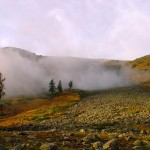
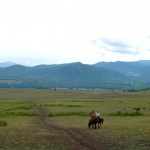
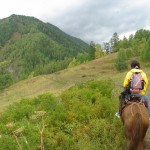
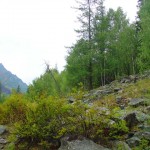
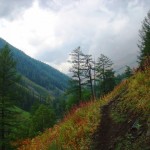
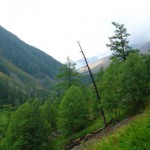
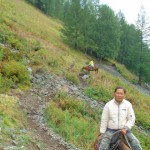
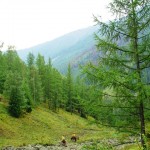
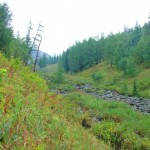
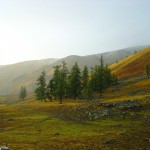
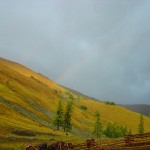
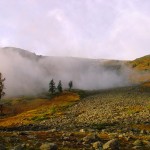
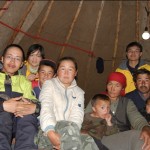
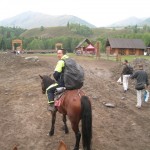
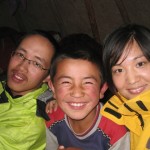
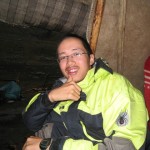

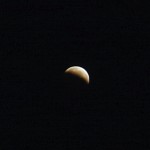
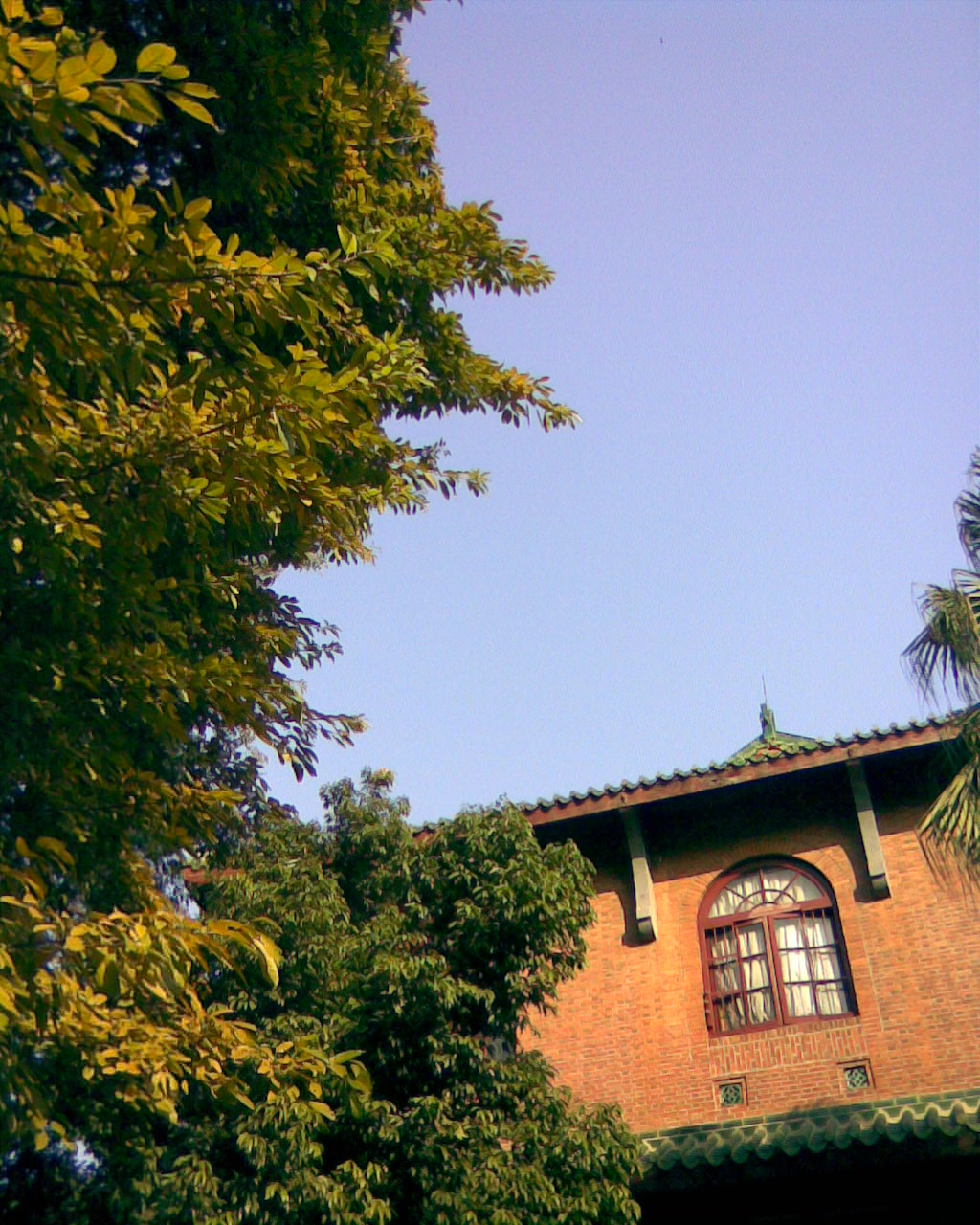

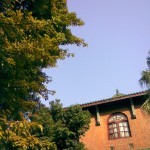
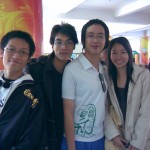

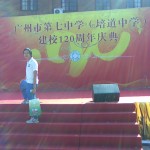
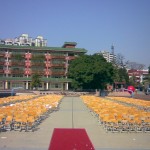
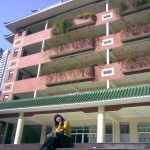

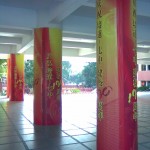
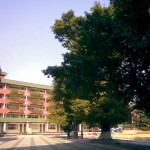


























最新评论 Recent Comments